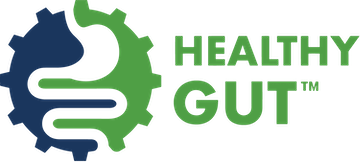The Surprising Health Benefits of Pets
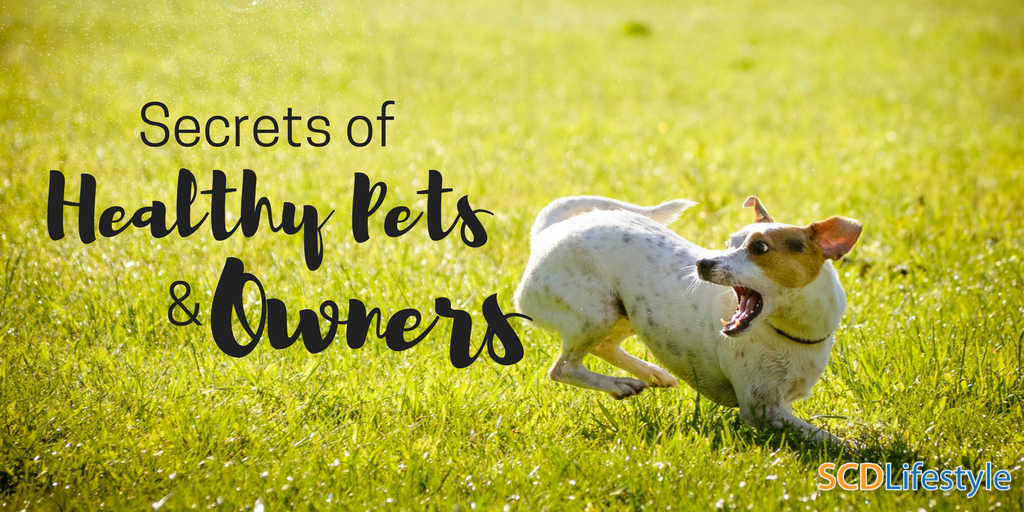

Name 3 things you can do to improve your gut health.
How about take a probiotic? Maybe use a supplement like l-glutamine? Drink a cup of bone broth every day?
These are all time-tested and science-backed ways to boost the health of your digestive system…
But there’s something else I use to boost my gut health, my immunity, and overall sense of happiness and well-being.
You might use it too, and not even realize it!
It weighs about 80 pounds. It’s got a long, wet tongue. And it loves nothing more than a belly rub.
Yes, it’s my dog.
Pet ownership has myriad health benefits – not limited to improving the diversity of the microbiome (aka your gut health!). Today, I’m excited to share a few of the health benefits of pet ownership – and what you can do to return the favor and keep your pet happy and healthy, too.
Is Our Modern World “Too Clean?”
Have you ever heard the expression “A little dirt won’t hurt?”
It’s one of those things you might have heard your grandma say, or on the playground as a kid when you dropped your orange slice.
Like the phrase “gut instinct,” its roots are likely in the ancient wisdom humans had about their bodies and the planet.
Today, you’re less likely to hear that a little dirt won’t hurt. Instead, you’ll be encouraged to “disinfect,” “cleanse,” and “sanitize” everything from your laundry to your toilet to your food. Oversized bottles of hand sanitizer are ubiquitous in classrooms. Every grocery store has antibacterial wipes available to use on the carts. But the war on germs has had unintended consequences.
(Wondering what this has to do with your pet? Keep reading!)
Despite the world getting cleaner, incidences of allergies and asthma have only increased. The leading theory for why? It’s called the “hygiene hypothesis.” It suggests that by over-cleaning, we have prevented our immune systems from learning how to respond properly to threats.
Antibiotic-resistant infections like MRSA are another unintended consequence of trying to make the world “clean.”
Even the FDA has caught on to what a problem over-cleaning is – just this year, the antibacterial triclosan was banned from soaps and personal care items.
What we need is not to live in a “clean” or allergen-free world, but rather to be exposed to allergens and dirt so we adapt to fight them off. It turns out, a little dirt might just not hurt – it may help!
What Does The Hygiene Hypothesis Have to Do with Rover?
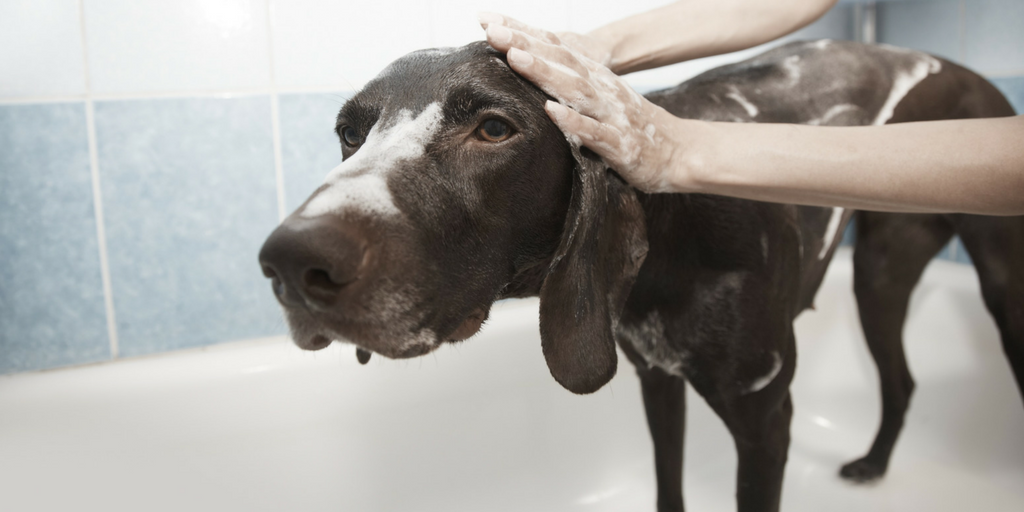
Aside from offering love, companionship, and free kitchen-floor-cleaning services, pets can improve our lives in one other way. Pets are dirty. My dog loves nothing more than rolling in the grass. My sister’s dog will plunge headfirst into a muddy puddle any chance he gets.
And while my 21st-century-human instinct is “Now he needs a bath!” the truth is that being “dirty” is both natural and healthy for pets and their owners.
As people spend less and less time outdoors and in direct contact with dirt themselves, pets act as liaison between humans and dirt. Your dog rolls in the grass, then you hug your dog. The result? Less allergies and asthma for you.
It’s this “dirt” – or more specifically, the dust and dander created by dogs – that contributes to reduced allergies and asthma in their owners.
A 2013 study conducted by the Tufts School of Medicine showed that early-life exposure to dogs was protective against allergies and asthma. Exposure of mice to dogs led to a distinct gut microbiome composition that was especially high in Lactobacillus johnsonii, which was protective against asthma.
This means that having a dog can impact the gut microbiome – and that change in the microbiome can mean fewer allergies and less asthma.
Dogs are Heart-Healthy, Too
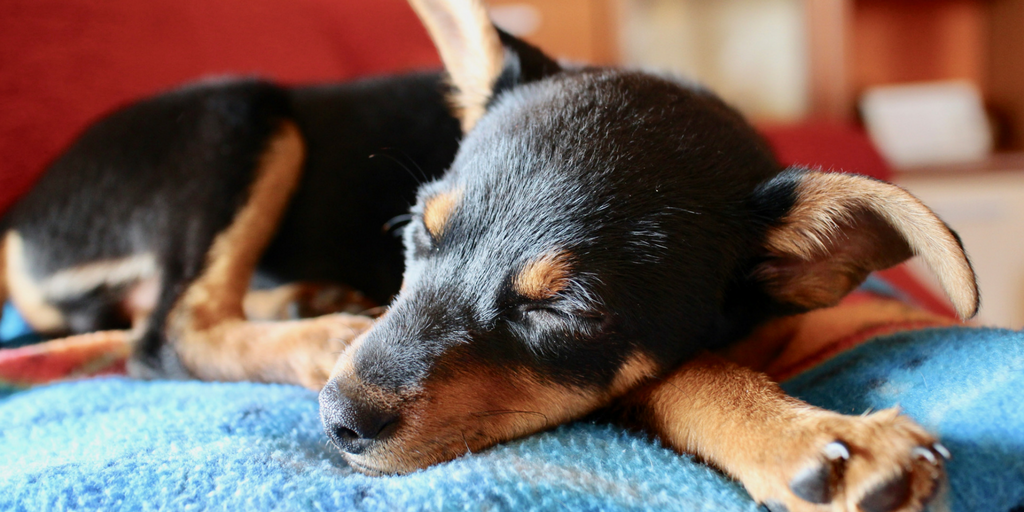
Further studies, like this one conducted by the American Heart Association point to a probable association between dog ownership and decreased cardiovascular disease rates.
While the study can’t prove a causal effect, we can assume that owning a dog can decrease CVD risk because people who own dogs are more likely to engage in regular exercise – all that dog-walking. Another theory is that CVD risk decreases because of the stress-relief and companionship pet ownership provides.
Either way, the link between owning a dog and improved blood pressure, lower cholesterol, and decreased risk of heart attack exists.
Pay It Forward
Your dog provides you with unconditional love AND health benefits. In exchange, he just wants a belly rub.
But, in addition to lots of love, you can also strive to take the best care possible of your pet, so that they can live a long, healthy life.
3 Ways You Can Return the Favor and Help Your Pet Stay Healthy
1 – Feed a High-Quality Food
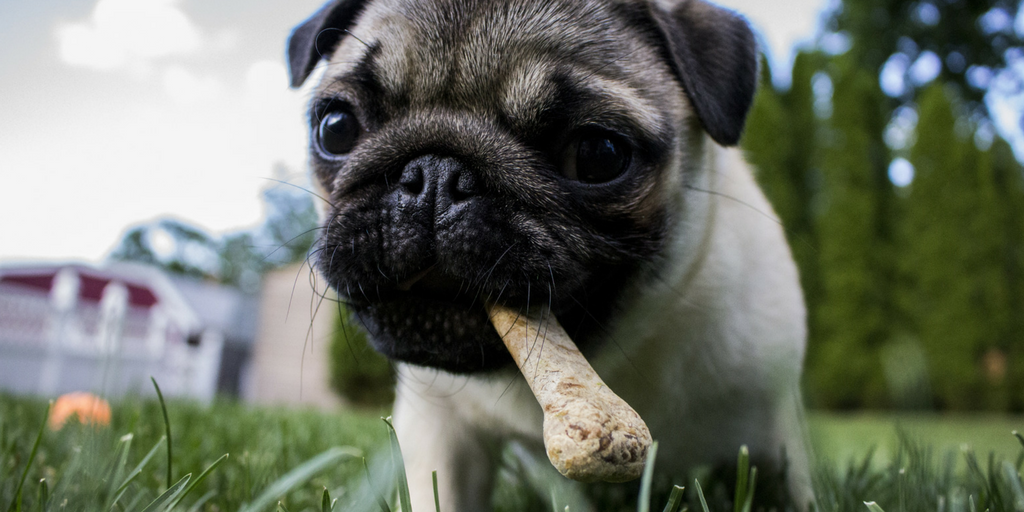
Most commercial dog foods are full of ingredients you wouldn’t eat yourself. Here’s the ingredient list from Beneful, one of the most common dog food brands in the U.S.:
Chicken, whole grain corn, barley, rice, chicken by-product meal, whole grain wheat, corn gluten meal, beef tallow preserved with mixed-tocopherols, soybean meal, oat meal, poultry by-product meal, glycerin, egg and chicken flavor, mono and dicalcium phosphate, calcium carbonate, salt, potassium chloride, poultry and pork digest, avocado, dried carrots, dried tomatoes, MINERALS [zinc sulfate, ferrous sulfate, manganese sulfate, copper sulfate, calcium iodate, sodium selenite], VITAMINS [Vitamin E supplement, niacin, Vitamin A supplement, calcium pantothenate, pyridoxine hydrochloride (Vitamin B-6), Vitamin B-12 supplement, thiamine mononitrate (Vitamin B-1), Vitamin D-3 supplement, riboflavin supplement (Vitamin B-2), menadione sodium bisulfite (Vitamin K), folic acid, biotin], choline chloride, L-Lysine monohydrochloride, Red 40, Yellow 5, Blue 2, garlic oil, Yellow 6.
These ingredients not only don’t support a healthy gut microbiome in your dog, some of the ingredients actively harm a healthy gut. And foods like soybeans, corn, and whole wheat have no place in a dog’s natural, carnivorous diet.
And unfortunately, Beneful isn’t even one of the worst foods you can feed your dogs – it’s just part of the SADD (Standard American Dog Diet).
If you’re feeding your dog a SADD food, you might notice these unpleasant side effects:
- Increased stool volume
- Foul-smelling stool
- Dull coat
- Increased shedding
- Bad breath
- Increased odor from skin and fur
- Decreased energy
- Weight gain
- Tear-staining of fur
- Allergies
- Excessive scratching
- Ear and skin infections
- Runny nose/eyes
Yes, these issues are all related to diet – because diet is the foundation of gut health, and gut health is the foundation of whole-body-health!
You may want to consider if a raw-food diet would be right for your pet (this article can help you figure that out).
If continuing with prepared dog food is the right choice for you, here are some guidelines:
- Avoid grains and soy. If you want to include a starch in your dog’s food, choose potato
- Meat should be the first ingredient, and crude protein should be 20-30% of the food
- The overall ingredient list should be short, and recognizable
2 – Supplement Wisely with Probiotics
Just as humans benefit from the healthy boost of bacteria, so do pets.
In addition to a high-quality diet, the best thing you can do for your pet is supplement with probiotics (especially important if you’re feeding prepared foods, which contain less beneficial bacteria than do fresh foods). A daily probiotic supplement can help improve the health of the microbiome.
A healthy gut microbiome in a dog can manifest as:
- Shiny fur and clean teeth, no tear staining
- Less shedding
- Lower volume of stool
- Less stinky stool
- More energy
- Decreased joint pain
- Decreased ear and skin infections
- Less itchiness
- Improved mood, less anxiety
- Healthy weight
My vet recommends either a daily spoonful of homemade yogurt, or a special pet probiotic like Full Bucket Daily Dog Powder.
3 – Embrace Their Natural Dirt
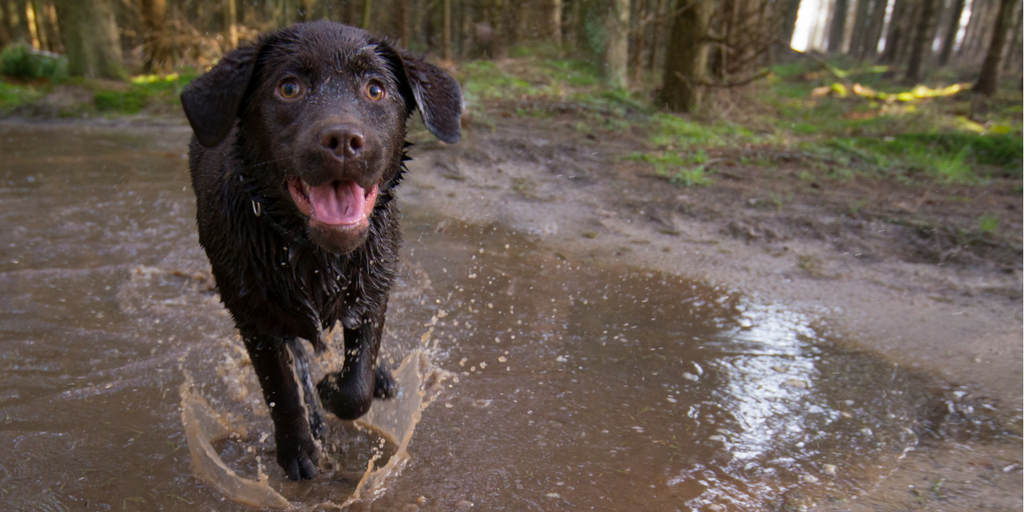
Your dog’s skin and coat are home to hundreds of thousands of good bacteria that help keep him clean and healthy. This is the “skin microbiome” – similar to the gut microbiome.
Dogs aren’t meant to have a daily bath, as over-bathing can disrupt the skin microbiome, which controls shedding, oil production, odor, and more. Being “dirty” is part of what makes them dogs – and part of what helps them keep you healthy, too.
Over-washing can actually make your dog stink MORE – as the natural oils are stripped from the skin, your dog’s skin microbiome will respond by producing even more oil. A dog with a healthy gut and skin microbiome (from proper food and probiotics) doesn’t need frequent baths to be clean.
Instead, give your dog a thorough brush at least once a week. This helps distribute oil through the fur (making it shiny and smooth), gives you a chance to check for potential issues, and helps you bond with your pet.
But, occasionally your dog does need a little more than just brushing – especially if they are inside. Because my dog likes to sleep at the foot of my bed, it is important to me that he is clean.
However, I won’t use any “dog shampoo” on my pet – the harsh solvents and cleaners in dog shampoos leave my dog itchy, his fur dull, and he’s stinky again in just a few days. These symptoms are all signs his skin microbiome has been disrupted by soap.
Instead, I use a spray specially designed to clean without disrupting his microbiome. It introduces powerful, “good” probiotics to his skin microbiome that help keep him clean, shiny, and happy. I think of it like a probiotic supplement for his fur!
With regular brushing and use of the Petbiotics spray, I find my dog rarely needs a true bath.
When he does, I use a natural, extra-gentle shampoo like this one.
(Pro tip – I also use this spray on anything he lays on – like my bed, and even his favorite sunny spot of carpet. For anything that can be washed, I use the Petbiotics Clean Home Concentrate. I love it because I know that even if my dog licks or chews whatever I washed, he’s safe – there are no harsh chemicals. I even use this to wash his plush toys).
Healthy Pet, Healthy You
Having a pet is a big commitment. While we would never advocate getting a pet just because they can improve your health, knowing that my dog makes me healthier makes me appreciate his presence in my life even more.
Just like for humans, having a healthy pet depends on keeping their microbiome healthy. That means feeding a healthy diet, using supplements like probiotics, and not over-washing. After all, dogs just want to be dogs 🙂
-Steve
P.S. – Right now, you can save 25% on the same products I use to keep my dog Gus clean and healthy! Use this link and the code “PET25” when you purchase any Petbiotics products to access the discount.
Did You Like this Article?
Subscribe to our newsletter to receive email notifications, some ways to find relief, and next steps.
